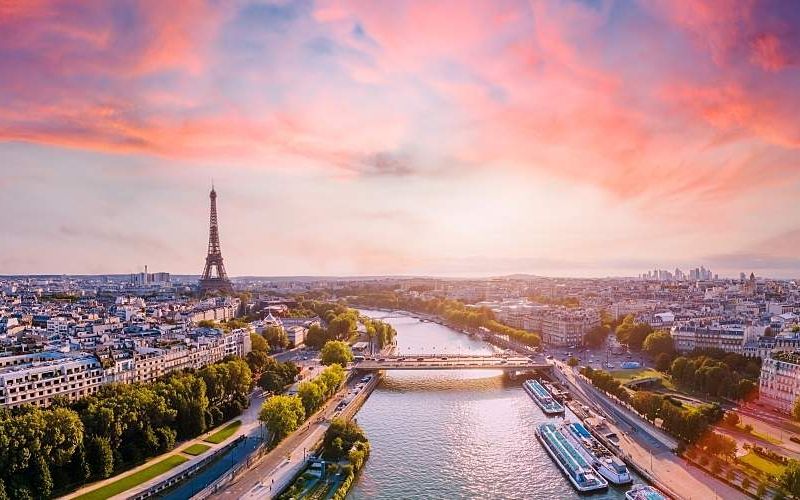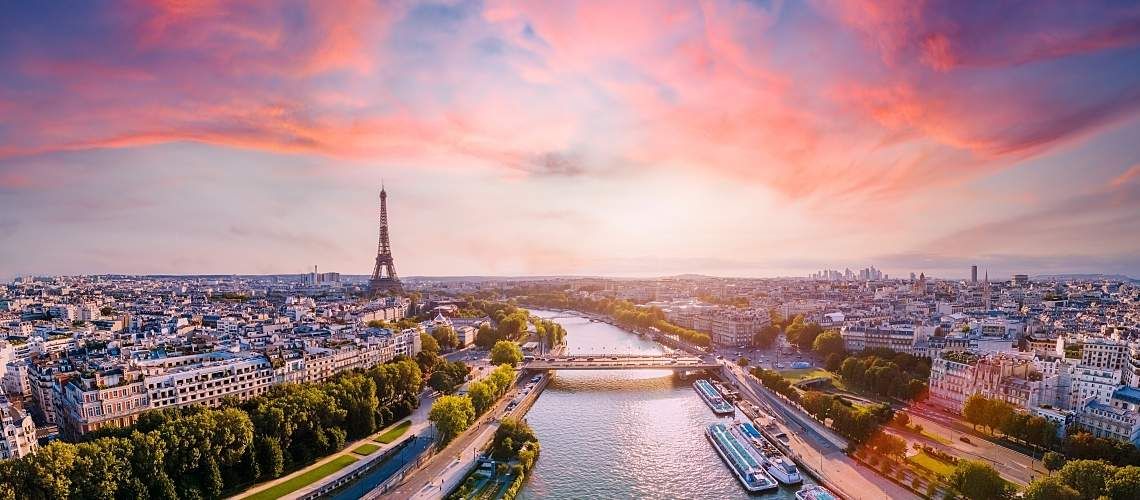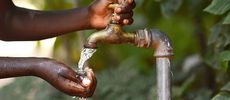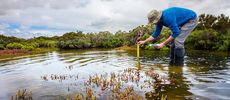Water Quality Cancels Paris Olympics Swimming Test Events


It's been a century since swimming was allowed in the Seine, the romantic river that meanders through Paris. But that will change during the Paris Olympics that begin in July 2024. The river will be the site of various aquatic events—including marathon swimming, triathlons, and para-triathlons—and of the first Olympic Opening Ceremony to be held outside a stadium, expanding capacity to an unprecedented 600,000.
Ensuring the water quality is acceptable, however, won't be easy. France is spending $1.5 billion on major infrastructure projects to clean up the historically polluted river. If water quality isn't adequate for recreation, there's no Plan B. That's a major source of worry for organizers.
Officials canceled two swimming trial events in August 2023 due to contaminants. Water quality tests ahead of an event on August 19 showed bacteria levels higher than permitted, and those for the next day's swimming events remained inconsistent. The suspected culprit? Heavy rains resulting in sewer overflows.
Let's take a closer look at the ambitious plans to clean up the Seine and the challenges France and the city of Paris face to make sure the river is ready when the Games begin.
Centuries of Water Pollution in Paris
The Seine River stretches 483 miles from Burgundy through Paris and out to sea in Normandy. On the journey, the river cuts through a portion of Paris filled with homes and offices fitted with outdated plumbing that allows sewage to leak. Torrential rains wash filth on the streets directly into the river. And the numerous boats that ply the Seine also dump sewage into it.
The water quality issues extend upstream of the city, where factories and industrial sites discharge pollutants. The river is both a scrapyard and a boneyard as well—360 tons of large items are hauled out annually. And the Seine served as a final resting place for those killed in wars dating back to the 16th century.
Not surprisingly, high levels of metals and fecal bacteria have forced a ban on swimming in the Seine since 1923. The river has been simply too toxic for recreation—and the last time it saw Olympic events was 1900. Given the hurdles, France's big-budget plan to clean up the river has been met with skepticism.

The $1.5 Billion Seine River Cleanup
The cleanup focuses primarily on keeping untreated water out of the river. Officials have been working to ensure homes upstream of Paris and houseboats on the Seine no longer empty sewage and wastewater into the river. A law adopted in 2018 gave moored boats two years to hook up to Paris' sewage network. In addition, improvements are being made to wastewater treatment plants along the Seine and its tributary, the Marne.
But the plan also requires convincing thousands of building owners to let crews connect their home and office pipes properly to the sewer system. Despite governmental subsidies, it's not an easy sell. In some Paris suburbs, sewage pipes were originally connected to the rainwater system that runs right into the river. But to determine where this occurred, workers must dig up the lines and check, adding another layer to the process.
A Plague of Storms
There's one more critical issue—addressing pollution caused by storms. Even if tests show safe water quality during sunny weather, that often changes when heavy rains fall, as they did right before the swimming test events.
The downpours cause overflows of untreated waste, leaving water unfit for swimming. That's why one of the most essential pieces of the cleanup plan is constructing huge storage basins and public works that will decrease the amount of untreated, bacteria-laden wastewater spilling into the Seine when it rains.
For example, a storage facility being dug next to Paris' Austerlitz train station will hold the equivalent of 20 Olympic swimming pools of dirty water. Instead of flowing into storm drains and straight into the river, 13.2 million gallons will now be treated first.
Making and Inspiring Progress
All these measures are essential both for the Olympics and for the future. City of Paris administrators hope to keep the river clean enough for public swimming after the Olympics. That calls for 23 walled pools in the river to serve the city and suburbs.
Officials claim that water quality has been mostly acceptable during extensive testing in recent months, and more fish species are returning to the Seine. But the inability to hold planned swimming test events in August shows there's more work to be done.
Assuming success by July 2024, the cleanup of the Seine River would be a significant achievement for France. President Emmanuel Macron described it as "one of the greatest legacies of the 2024 Olympic and Paralympic Games in Paris." That legacy could include revived fish stocks, restored river foliage, and refreshed humans who can escape from sweltering summer temperatures in the water.
Time Magazine noted that if the heavily polluted Seine becomes fit for swimming again, the accomplishment will be rare for a major metropolis. Smaller European cities like Zurich, Munich, and Copenhagen have opened urban swimming in their rivers. Similar efforts are underway in Berlin and Amsterdam. But none of these cities competes with the scale of Paris.
One city that does is Los Angeles, host of the 2028 Summer Olympics. The city even sent water and sanitation experts to Paris to study the Seine cleanup. If the effort gave the visitors hope for their own metro area, the City of Light could become the unexpected poster child for reclaiming waterways in major cities worldwide.






